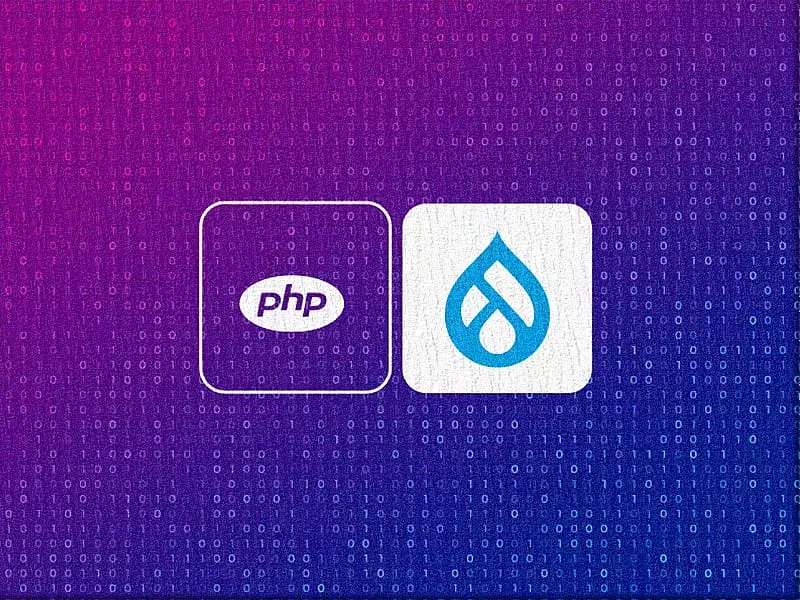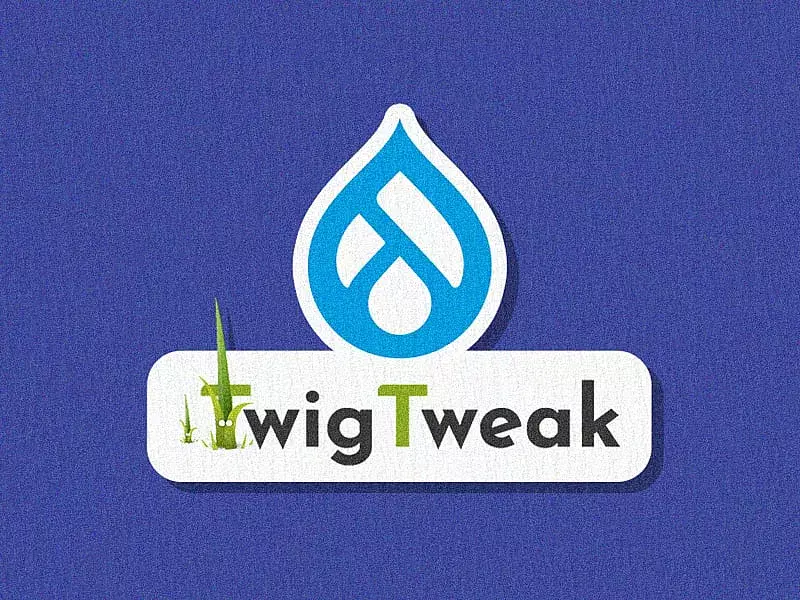Table of contents
- Enterprises web development on Drupal
- So what makes Drupal the best enterprise CMS? Or, "give me the tools to make my case."
- User Management with Drupal
- Enterprise Content Management with Drupal
- Better Admin Interface for Enterprise Websites
- Making Code Easy with Drupal
- Keeping Pace with Innovations
- Improved Technology Stack Using Drupal
If you’re reading this, you probably already have an idea of what enterprises spend on their websites annually (Hint: It’s a lot). Maybe the more telling question is why they spend so much on enterprise websites. That answer is complex... No, really, the answer is literally “complexity.”
From our end, it’s an entirely different experience working on an enterprise web development project than just building a standard website. What sets the enterprise website apart from the ones thought of as "normal" is, in most cases, the CMS used and the feature-rich experience. One thing to note is that it’s not the features themselves that take so much time and planning. When you work on enterprise web development, you are building an experience, a seamless environment that requires intense expertise, executive-level strategy, and an understanding of business itself. That’s where that planning comes in.
Projects like these also require a different kind of platform. Combining tools and strategies, ECM (Enterprise Content Management) Systems are what most enterprise businesses use to handle a wide range of requirements across all verticals. Think complex processes that a user might need to accomplish like scheduling classes at a University with multiple campuses.
The downside of ECMs is that they have been historically clunky, overly complicated and slow to catch up with modern web standards. But with the introduction of Drupal, the ECM System has seen a huge boost in flexibility and streamlining. With Drupal as your ECMS, you can offer a modern web experience to your users without falling behind.
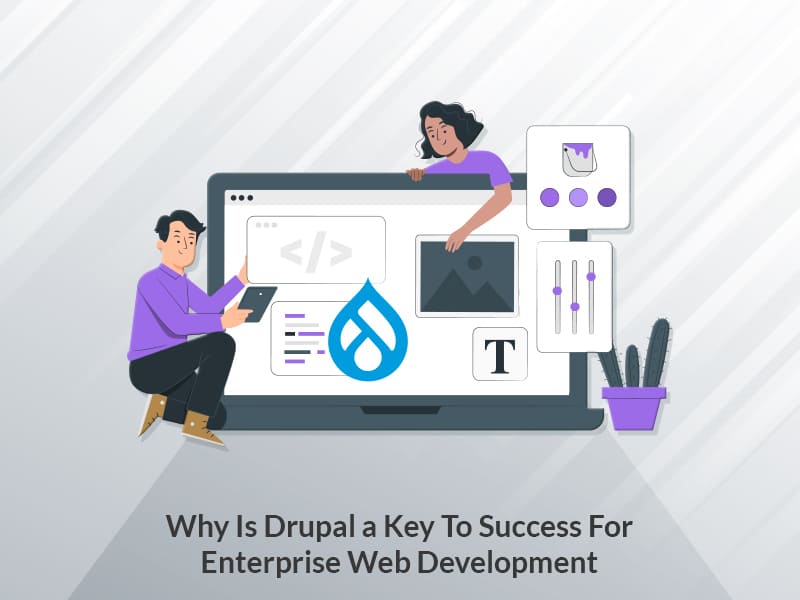
Enterprises web development on Drupal
With organizations struggling to bring their public facing websites and applications to life, what drives the market today is solving seamless integration of complex technologies. While choosing the right technology can be an endeavor with multiple strong voices in enterprise technology and marketing teams, more and more organizations are leveraging Drupal for enterprise web development.
So what makes Drupal the best enterprise CMS? Or, "give me the tools to make my case."
User Management with Drupal
On logical grounds, the main function of an enterprise CMS portal is to provide better means for various users to create, edit and manage content on the website. In Drupal, providing basic user management functionalities are easy as it comes right out of the box. Based on the requirements, the admin can grant a user with one or more roles. This flexible nature of Drupal allows admins to shape the Enterprise Content Management System to their business goals.
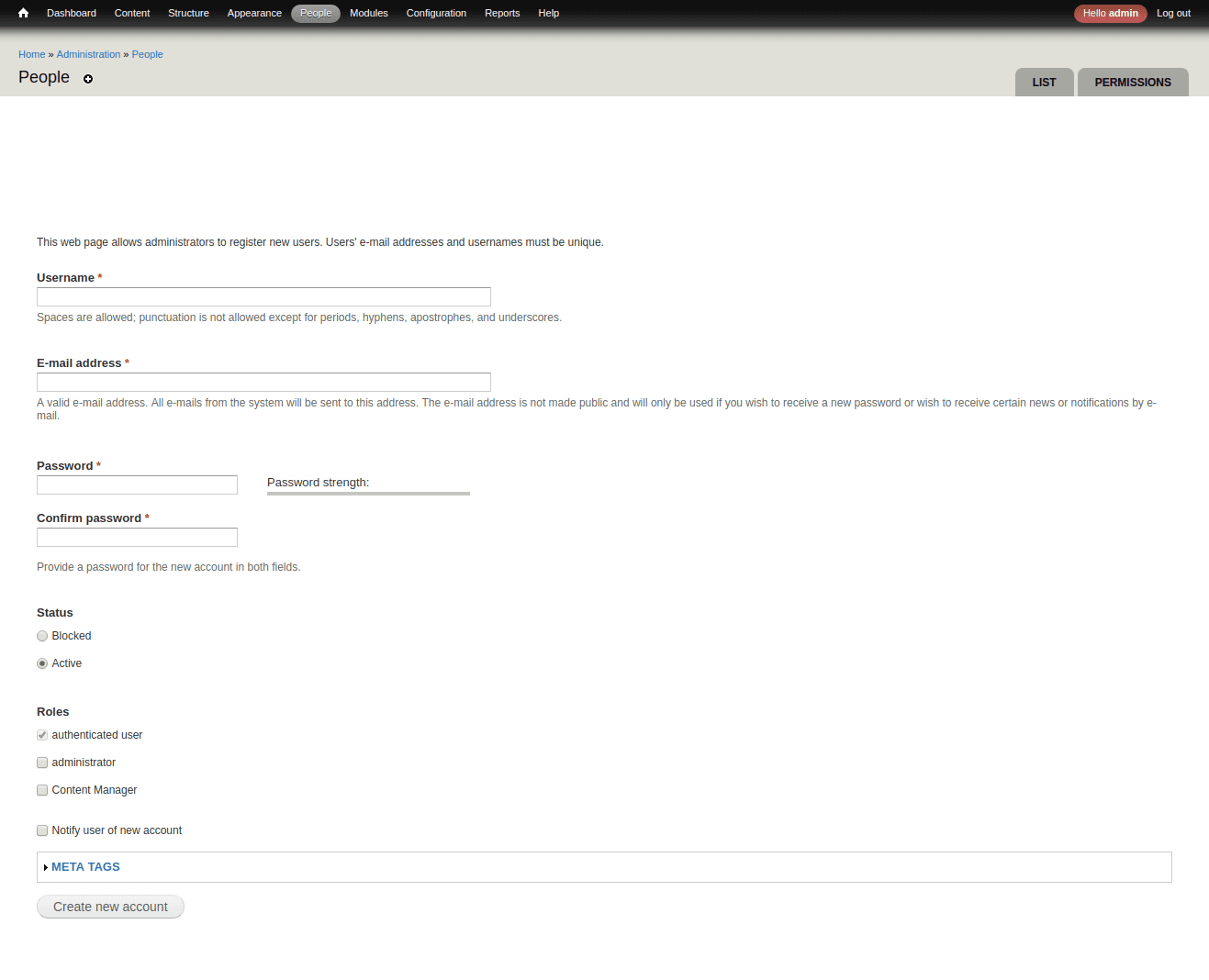
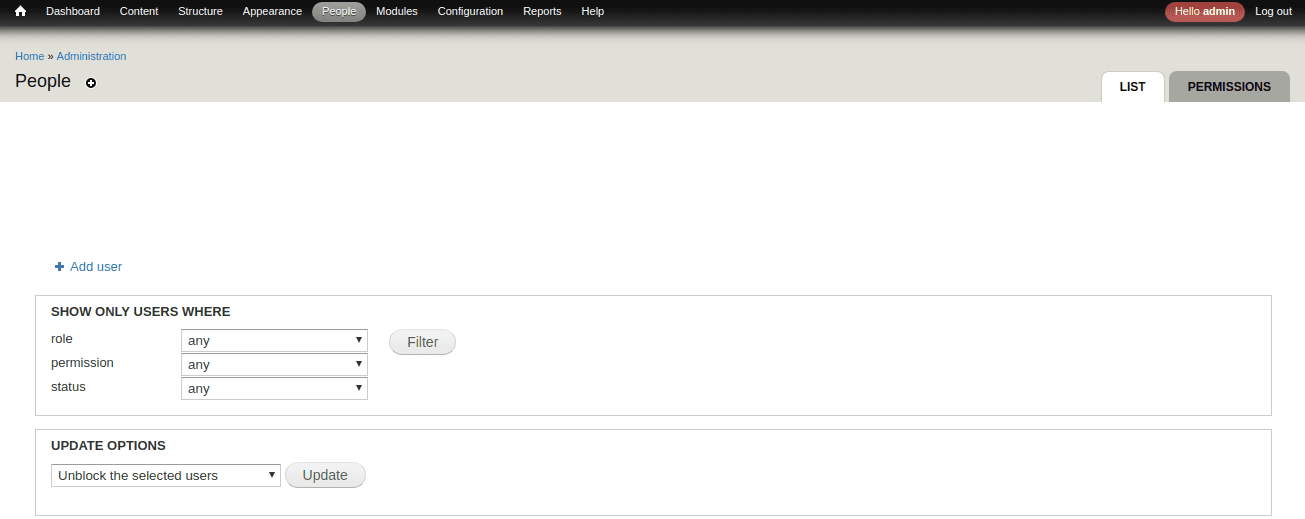
Enterprise Content Management with Drupal
While businesses rely on generic content types such as blogs, news, and articles, Drupal enterprise websites make use of custom fields for such content or to create their own custom content. A CCK (Content Construction Kit) which addresses the need of enterprise businesses to create their own content is a go-to option in such cases. Drupal has its own CCK module in core to tinker with the access provided to various content-types and content for enterprise content management websites.
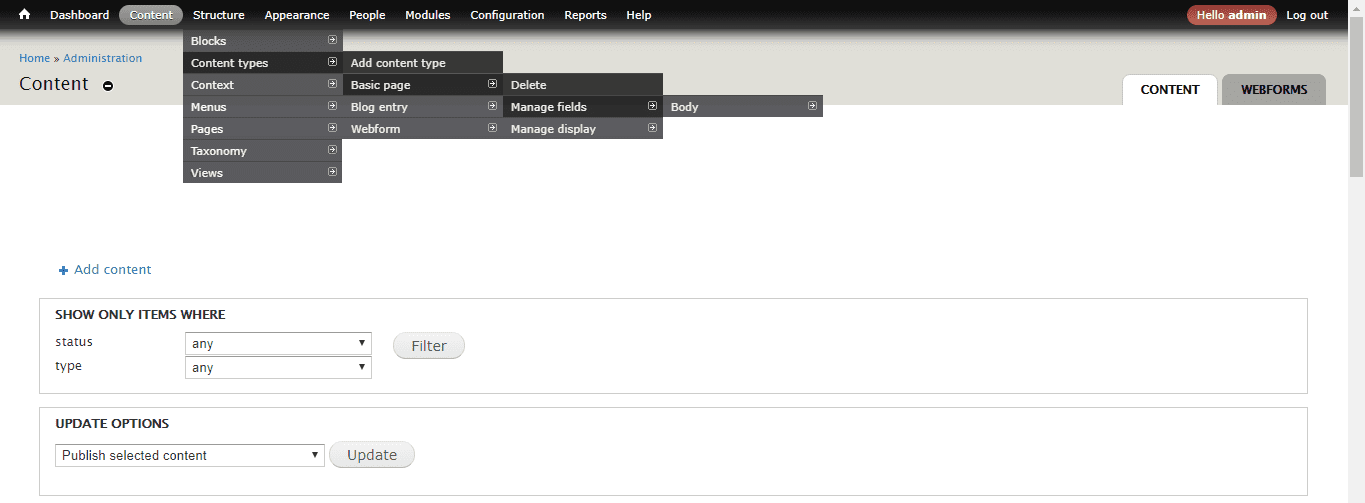
In addition to that, Drupal's flexibility also allows users to tag content or assign pre-determined tags, driven by the nested categorization of enterprise web content.
Better Admin Interface for Enterprise Websites
ECM System Admin interfaces have a reputation… Drupal was no exception. You’ll undoubtedly hear about the old days of Drupal. Back in Drupal 4 and 5 the User Interface was like navigating the cockpit of a plane. It’s no secret that the Drupal admin UI was not so user-friendly back then. However, over the years, Drupal has made great strides to improve its admin interface to turn it into a responsive, out of the box, WYSIWYG back-end panel.
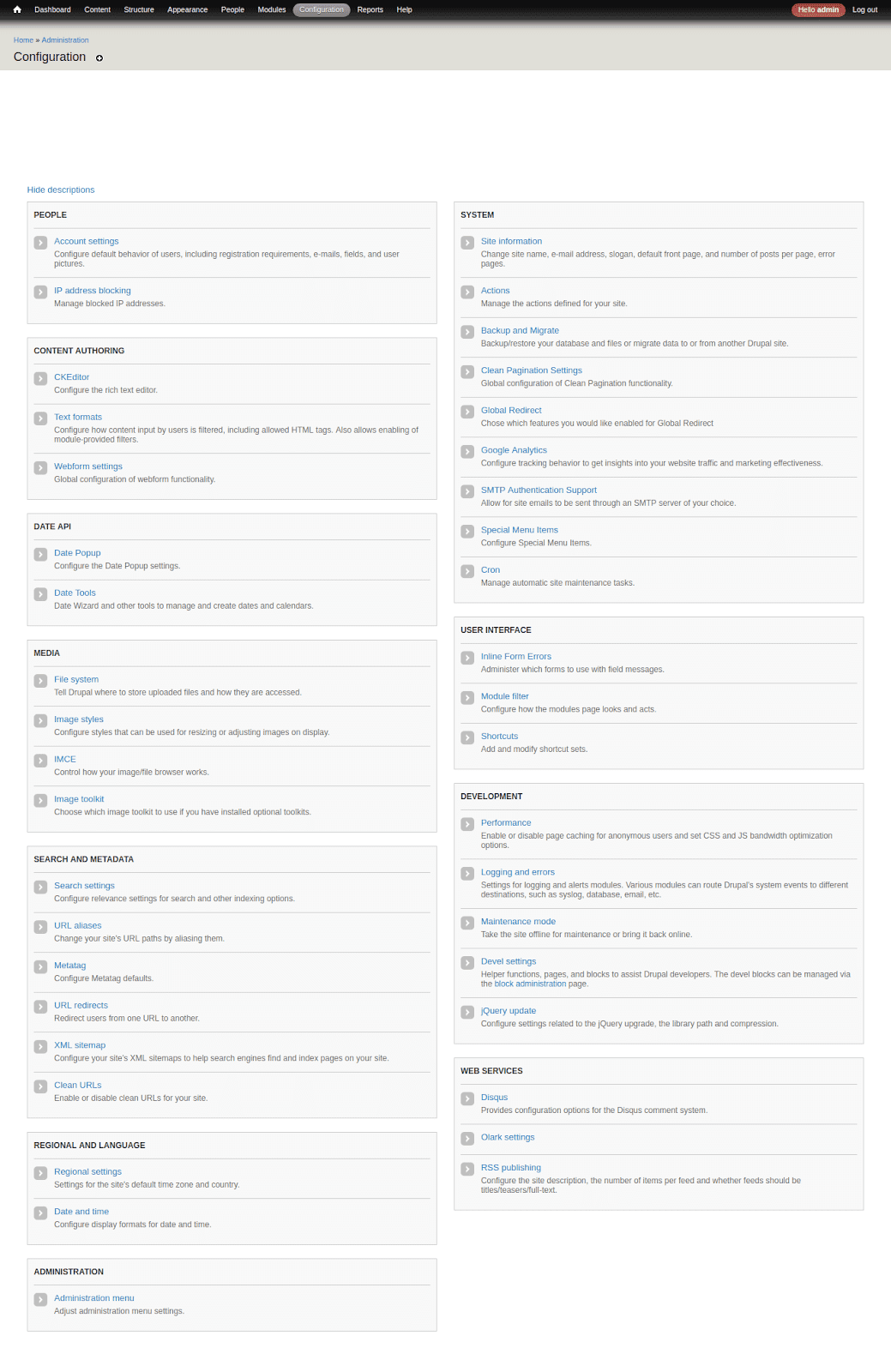
By combining different tools in the Drupal admin panel, you can create extraordinary Drupal experiences. It brings to the table an advantage over other CMSes by improving the site user work-flow of your Drupal enterprise website, expanding device support and making the entire system more approachable to your users; thus bringing them closer to your enterprise business.
Making Code Easy with Drupal
With high coding standards and a community of experienced developers performing well within the documented guidelines, Drupal allows for better and easy code customizations for your enterprise website.
Drupal already has a plethora of core and contributed modules that can be leveraged for any website. Because of its object-oriented nature and reusable code architecture, modifying and tweaking code is easy for Drupal experts.
What does this mean for you as an enterprise? When it’s easy to modify code on your website, deploying a new feature or tweaking an existing one will take much less time and effort. Which means gaining a competitive edge is easier than ever before.
Keeping Pace with Innovations
Powering some of the most complex and high traffic driving sites like Grammy, NASA, NBC, Tesla, Olympics, Government and education portals, the journey of Drupal so far has been glorious. To keep up with the growing technology, the community-driven CMS constantly updates its platform to empower enterprise websites with feature-rich releases. Drupal 9 is its latest addition and it comes with some amazing out-of-the-box features like better streamlining of the workflows to drive values, great digital experience, easy content publishing within the organization to make enterprise web development a simple, straightforward, trouble-free experience.
Improved Technology Stack Using Drupal
Drupal for long has been a "monolithic" CMS, working both as a front-end and back-end support. However, decoupled architecture is rising in popularity in the technologically advanced world. The changing landscape has resulted in some major developments in the Drupal world with the likes of multi-channel publishing and the shift of websites to a more interactive web application.
With decoupled Drupal, developers have the freedom to work with the front-end development and back-end development separately and still work together. Keeping in mind the easy way of enterprise web development, decoupled Drupal addresses the most common concerns like structured data, content syndication and providing a rich application ecosystem such as native mobile and IoT.
By now you would have known that Drupal is unparalleled in providing the best UI/UX, better engagement, integration and an overall seamless experience for enterprise websites. Over the years, Drupal has evolved into a complete framework that delivers the needs and overcomes the challenges of enterprise CMS portals. With top-notch features and future initiatives, Drupal is the best enterprise CMS of the future for enterprise web development.

